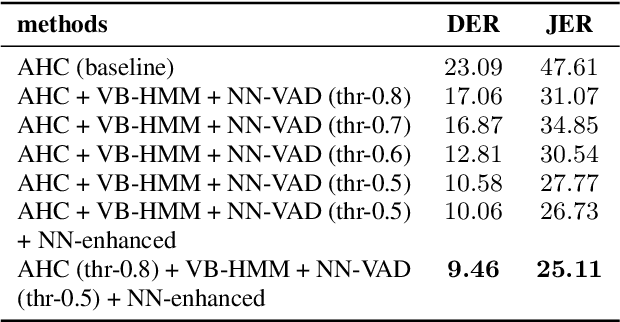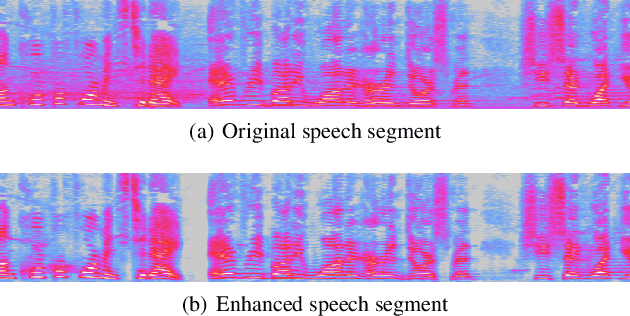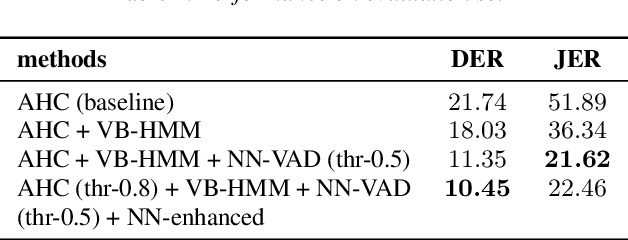The HUAWEI Speaker Diarisation System for the VoxCeleb Speaker Diarisation Challenge
Paper and Code
Oct 23, 2020



This paper describes system setup of our submission to speaker diarisation track (Track 4) of VoxCeleb Speaker Recognition Challenge 2020. Our diarisation system consists of a well-trained neural network based speech enhancement model as pre-processing front-end of input speech signals. We replace conventional energy-based voice activity detection (VAD) with a neural network based VAD. The neural network based VAD provides more accurate annotation of speech segments containing only background music, noise, and other interference, which is crucial to diarisation performance. We apply agglomerative hierarchical clustering (AHC) of x-vectors and variational Bayesian hidden Markov model (VB-HMM) based iterative clustering for speaker clustering. Experimental results demonstrate that our proposed system achieves substantial improvements over the baseline system, yielding diarisation error rate (DER) of 10.45%, and Jacard error rate (JER) of 22.46% on the evaluation set.
 Add to Chrome
Add to Chrome Add to Firefox
Add to Firefox Add to Edge
Add to Edge